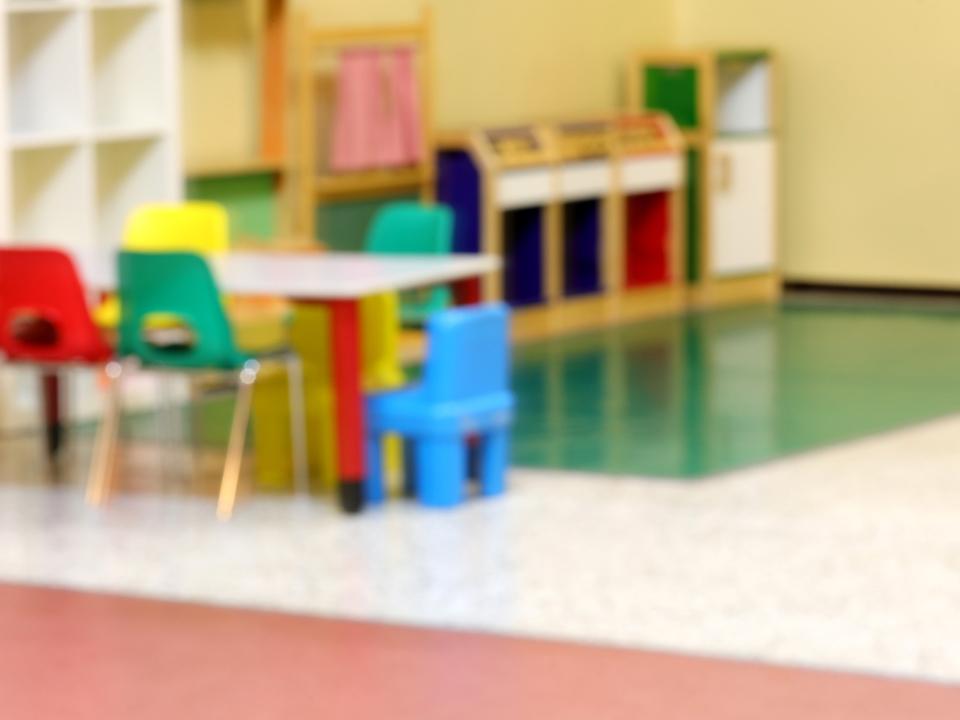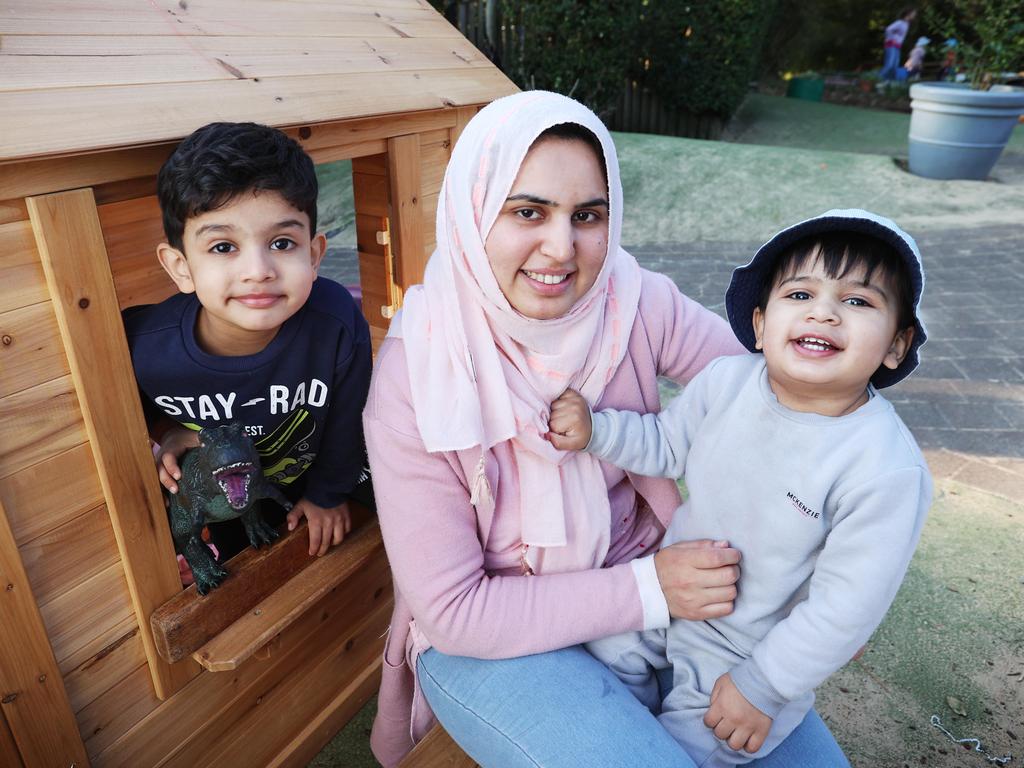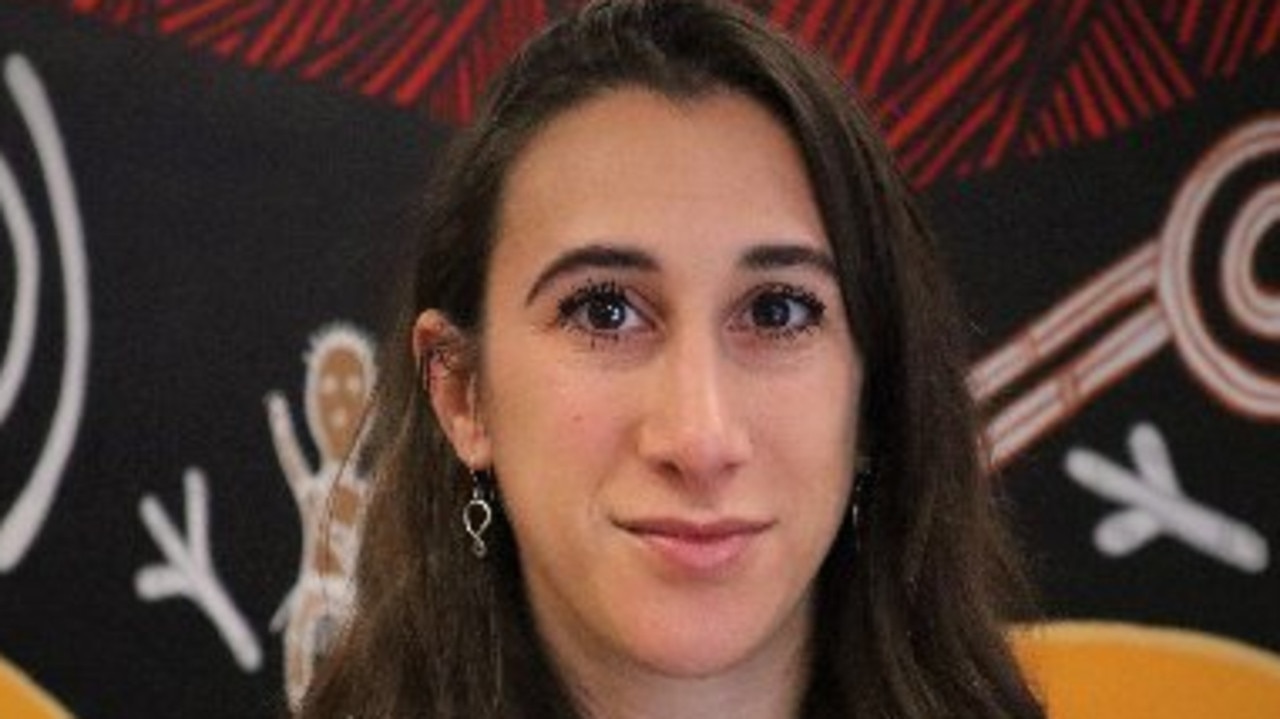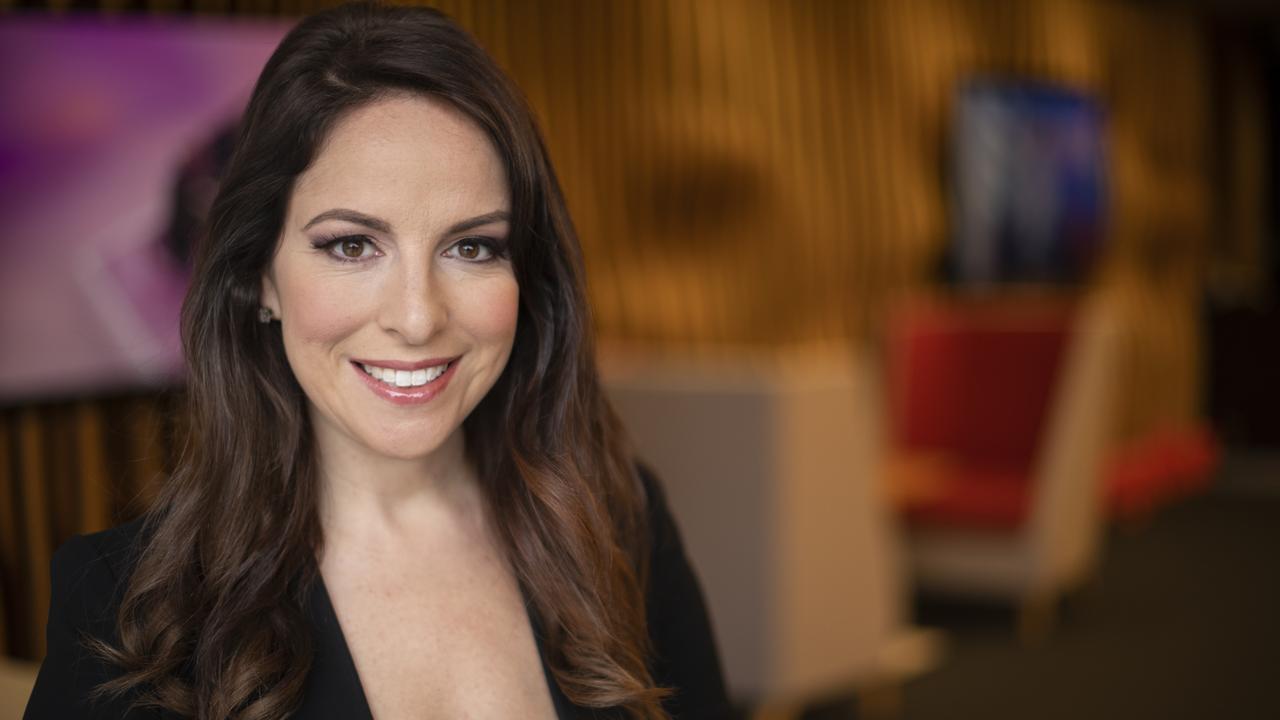Free childcare for poor families the focus of Productivity Commission review
An epiphany for Jason Clare, the federal Education Minister, came when he told his son Jack he’d be getting a longed-for baby brother.
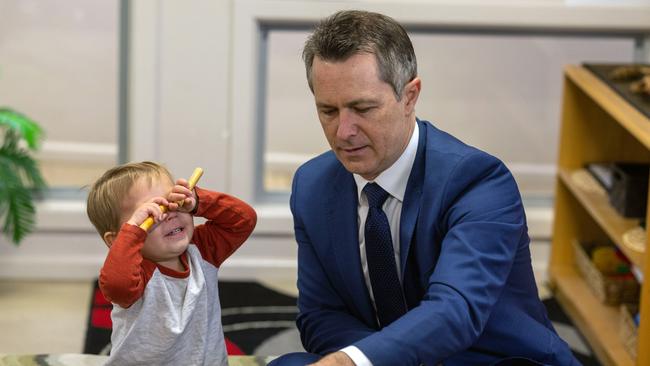
An epiphany for Jason Clare, the federal Education Minister, came when he told his son Jack he’d be getting a longed-for baby brother.
“I’ve got to tell Kellie!’’ Jack squealed in delight. He wanted to share his happy news with the woman who cared for him at daycare.
“That’s the moment I got it – how deep and special that bond is with the children you care for,’’ Clare told the Early Childhood Australia conference in Brisbane this week. The minister also gave a shout-out to childcare educator Kerrie, who now cares for Jack’s little brother Atticus.
“It’s been a tough year in my family,’’ Clare said. “My mum has been battling cancer. Every day I pick Atticus up Kerrie asks me how my mum is. She doesn’t just care for my little guy, she cares about his family. She is part of his family.’’
It is through this personal lens that Clare and Early Childhood Education Minister Anne Aly hope to change the perception of Australia’s childcare system – from a babysitting service for working parents to an early education service that helps children to thrive.
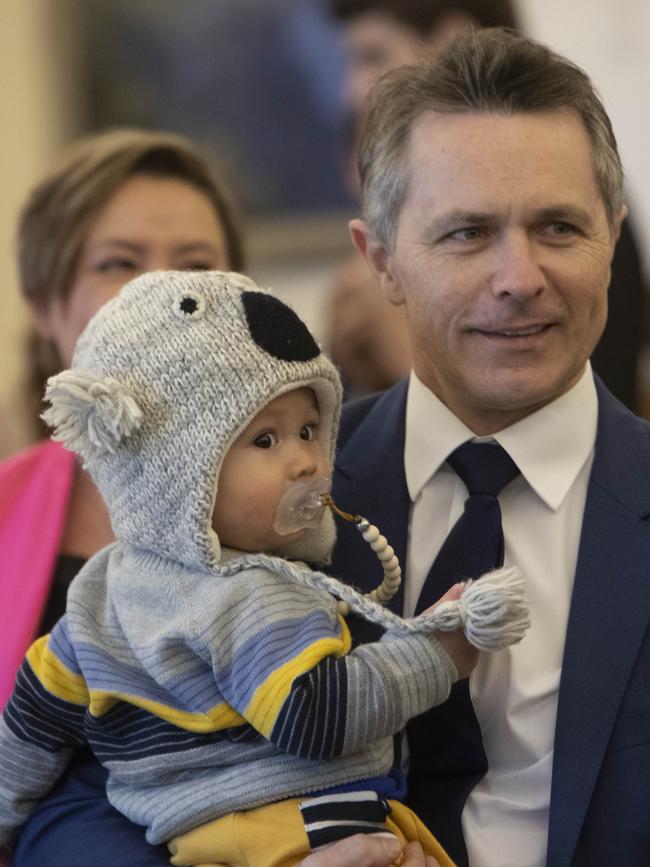
Many parents prefer to care for their own children before they start school, but most don’t have any choice. Some can comfortably afford to stay home; others make great financial sacrifices or have grandparents happy to help out. But 72 per cent of Australian mothers with babies, toddlers or preschoolers also hold down a paid job, in a national work-life juggle. Half the nation’s one-year-old children, and 90 per cent of four-year-olds, attend daycare or preschool.
For most millennial families, the climbing costs of food, petrol and healthcare, and a doubling in mortgage payments after 13 interest rates rises in the past two years, have forced both parents to work full-time.
Childcare is now an essential service. For single parents who have to work, it’s indispensable. For new migrants, there’s no better place for children to learn English. High-quality childcare can be a haven for children from dysfunctional families – sadly the only place they’ll eat a nutritious meal or get a bath or cuddle. For parents struggling with physical or mental illness, divorce or domestic violence, childcare can be a godsend. Lifelong friendships are forged in childcare centres, between kids as well as parents seeking connections in the frantic child-rearing years. Childcare has become the modern “village’’ it takes to raise a child.
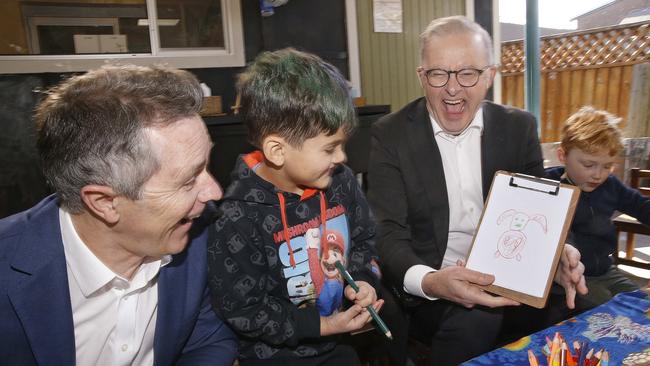
Taxpayers already spend $12bn a year on childcare, through a convoluted system of subsidies that have been tweaked by a tag-team of Coalition and Labor governments over the past 20 years.
The former Coalition government helped families’ cashflow by paying subsidies directly to childcare centres, so parents no longer had to fork out $100 or $200 a day and then wait weeks to claim back the cash. When it won office in 2022, the Albanese government raised subsidies to cover as much as 90 per cent of the cost of daycare for low-income families.
Significantly, it will spend $3.6bn to directly fund a 10 per cent pay rise for 200,000 childcare workers before Christmas, with a further 5 per cent raise next year. By lifting pay above the minimum wage, the government hopes to stabilise a low-paid and transient workforce glued together by goodwill but long taken for granted. Stable staffing will lay the foundation for expansion of an essential service relied upon by a million Australian families.
Free childcare for families earning less than $80,000 a year – including stay-at-home parents – is on the cards for next year’s federal election. The focus on free childcare for the poor tops the Productivity Commission’s to-do list of 56 reforms over the next decade, delivered to Clare in a 956-page report following an 18-month inquiry.
Labor’s endgame of “universal childcare’’ – a guarantee of at least 30 hours or three days a week of free or heavily subsidised childcare for 48 weeks a year for every child by 2036 – is so far on the horizon that babies born today will be in high school by the time it is implemented. The roadblock is that the childcare industry – a hotchpotch of private, charitable and government providers – needs time and money to recruit and train enough qualified workers to provide universal childcare within a decade.
In its new report, the PC has dropped its longstanding insistence that childcare is a service for working families. Now it wants the government to axe the “activity test’’ that requires both parents to be working, studying, volunteering or looking for a job to qualify for taxpayer subsidies that offset as much as 90 per cent of a family’s childcare costs, depending on income. This flips the traditional view of childcare as a babysitting service for working parents to a child-centric early childhood education and care (ECEC) service that prepares children for school and connects families to health and welfare supports.
The PC cites research connecting poverty to slower brain development. “By age six, a child’s total brain volume reaches 95 per cent of its peak,’’ the PC states in its report. “The relationship between socio-economic status (SES) and average grey-matter volume is weak in the first year of life, but large SES-based gaps emerge between ages one and three. By age five, reading and maths achievement is strongly correlated with family income.’’
The PC warns that “toxic stress, poverty or other adverse circumstances’’ can impair children’s development, and it notes that ECEC can provide a “window of opportunity’’ to help children through play-based education and care, with health interventions if needed. “While a child’s parents play a central role in their development, children can benefit from secure relationships with multiple caregivers, whether or not (they) are part of their family,’’ it states.
The PC found “mixed’’ evidence that long daycare benefits children, noting the benefits are stronger for children aged three or older, and those attending preschool programs. “While difficult to quantify, these benefits can be substantial and often extend beyond short-term effects on learning and development in early childhood to a wide array of outcomes, including educational attainment, labour market success and physical and mental health,’’ it states.
“Benefits seem stronger for children experiencing vulnerability or disadvantage.’’
On the flip side, too much time in formal care can be detrimental. ‘‘Associations with the number of hours of (long daycare) that children attend are more likely to be adverse, particularly for behavioural outcomes,’’ the PC states.
It found that free childcare for Australia’s poorest families will have a negligible impact on labour force participation. But it will connect 45,100 extra children to childcare or preschool – the 10 per cent who are least likely to attend now because their parents can’t afford, or don’t want, to pay a gap fee of $10 to $20 per day.
“The children who need (childcare) the most are the ones who aren’t there,’’ Clare says. “Children from really poor families, children in the remote parts of Australia and children with complex needs.’’ These disadvantaged kids, he notes, are most likely to “start behind’’ at school and struggle to catch up or keep up with classmates.
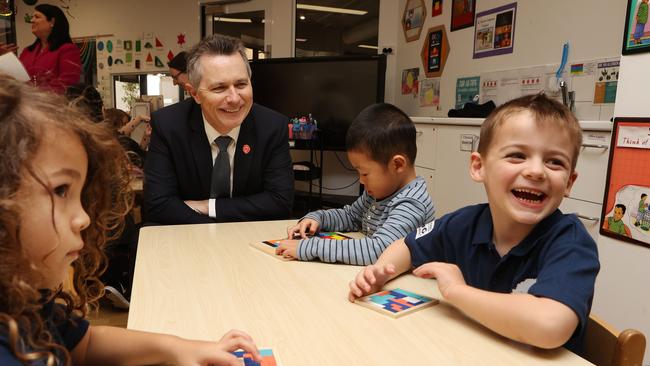
The PC has ruled out a 90 per cent subsidy for all families, or a $10 per day flat fee, on the grounds it will cost taxpayers more and benefit high-income families the most. To ensure that all families have a choice to use childcare, it called for a new Early Childhood Education and Care Development Fund to provide or subsidise services in regional towns and remote and Aboriginal and Torres Strait Islander communities, as well as city-fringe suburbs that private providers deem to be unprofitable.
State and territory governments, the PC says, should ensure that Out of Hours School Care is offered at every primary school with “viable demand’’, to ensure working parents with 9-5 jobs can find quality supervision for their kids when the bell rings at 3pm.
Challengingly, it recommends that ECEC take over some of the support now given to 100,000 babies, toddlers and preschoolers through the National Disability Insurance Scheme.
“Children whose need will be better met with mainstream and foundational supports will cease to access support via the NDIS,’’ the PC states in its report. “Mainstream supports will focus on early identification, screening, developmental monitoring and inclusion in ECEC and schools. Ensuring that there are sufficient numbers of ECEC educators and teachers with the necessary skills to deliver foundational supports will be the first challenge of this reform.’’
The PC calls on more universities to follow the Australian Catholic University and Wollongong University in fast-tracking degrees in early childhood teaching for educators with an early childhood diploma. It also wants to lift the nonsensical ban on childcare staff with older Certificate III qualifications from upgrading to a diploma.
The PC’s recipe for reform would raise government spending on childcare subsidies by 37 per cent, to $17bn a year, by 2036.
Treasurer Jim Chalmers, as the father of three young children with a working wife, is all too familiar with the work-care conundrum. He has flagged further investment in ECEC as a “game-changer for the economy’’.
“We’ve invested billions of dollars in making it more affordable, we’ve invested billions of dollars in paying early childhood educators the pay they need and deserve,’’ he said on Thursday. “But we know that we need to make it more accessible as well.’’
As Clare crunches the numbers on childcare reform costs in time for a looming election, the clock is ticking on his two-week deadline for state governments to accept a $16bn funding deal for public schools. So far, only Western Australia and the Northern Territory have agreed, while the others are demanding the federal government doubles its money. Premiers beware: Clare may well call their bluff and invest the commonwealth cash in early childhood education instead.


